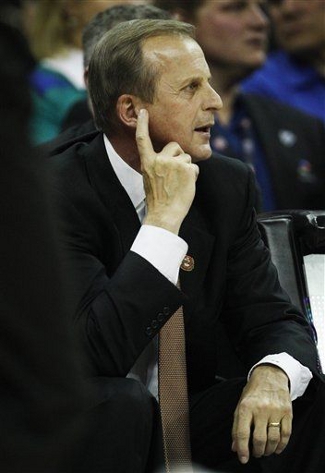[2] Missouri Tigers 81, [6] Texas Longhorns 64
All week, the buzz in Kansas City surrounded the impending final game of the famous Border War, a rare third meeting between Kansas and Missouri in the Big 12 Championship. This time, it would be for more than just bragging rights, with the possible prize being a favorable NCAA path through the St. Louis regional. Unfortunately, the Jayhawks didn’t hold up their end of the bargain, falling short against Baylor in the first semifinal on Friday night.
Although Missouri was denied the chance to face their rivals one last time, it didn’t seem to affect their motivation. The Tigers looked like a well-oiled machine against the Longhorns in the second semifinal of the night, coasting to an 81-67 win behind 23 points each from Kim English and Flip Pressey.

Rick Barnes must wait for his NCAA tourney verdict
(Photo credit: Orlin Wagner/Associated Press) |









